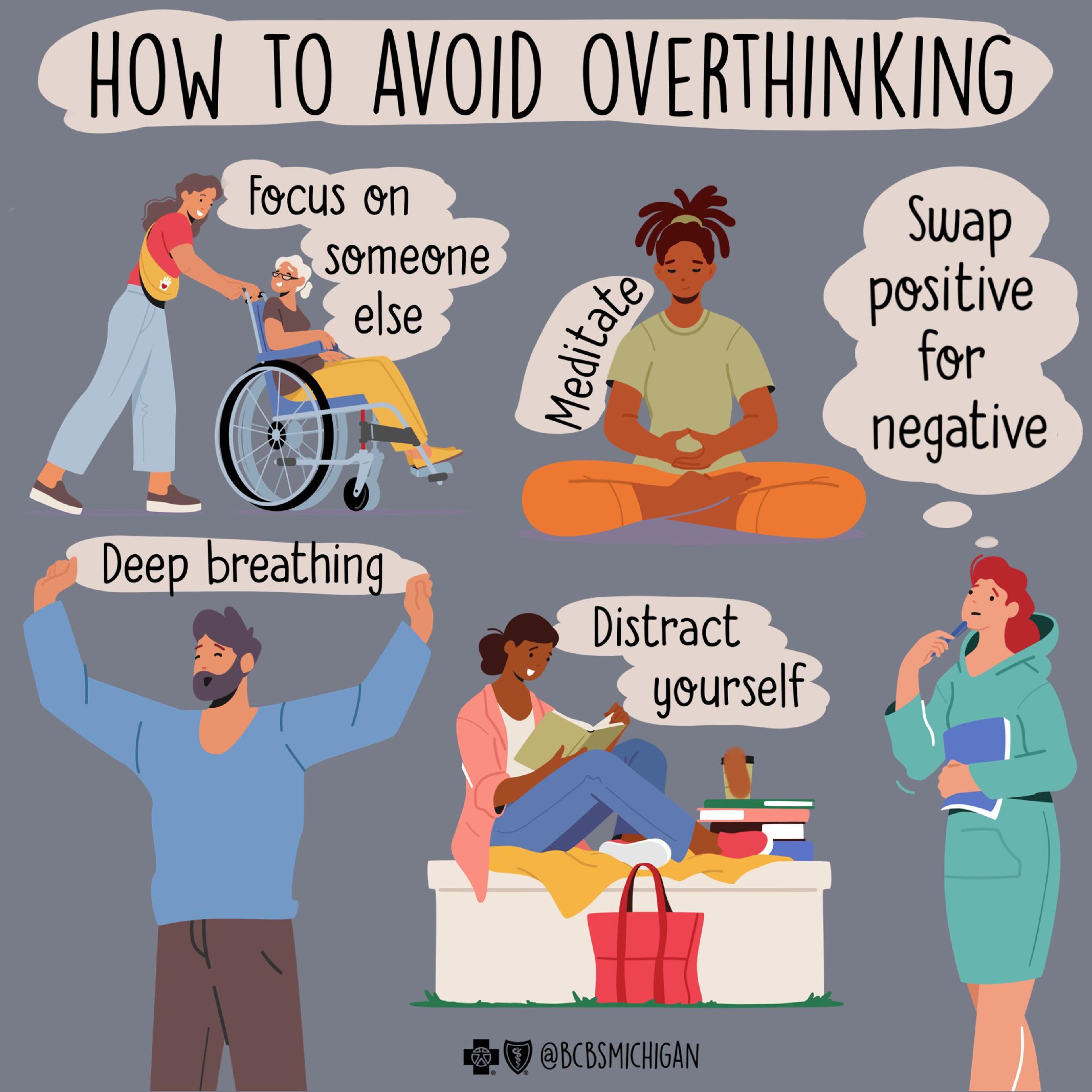How to Avoid Overthinking
Shandra Martinez
| 3 min read

When you’ve got a serious issue in front of you – whether it’s work or family-related – it’s always smart to carefully consider it. You might look at it from all the angles, make a list of pros and cons to your possible actions, and think about how different outcomes might play out. But what if deliberating about something turns into a time-consuming pattern of overthinking that leaves you worn out? Here’s how you can turn off the mental noise and avoid overthinking things.
There is definitely a line between thinking and overthinking. Here are some signs you know your mental workout has gone too far, according to an article in Forbes.
- You find your thoughts drifting back to the same topic constantly
- You keep replaying in your mind something that already happened
- You try to predict what might happen with a certain situation, and this causes excessive worrying
- Thinking about something keeps you up at night
- You fall asleep thinking about something – and it’s your first thought when you wake up
- You constantly replay embarrassing conversations or moments in your head
- You worry there might be hidden meaning in your conversations with others
- You worry about things you have no control over

Overthinking and mental health. The goal is to have some healthy self-reflection and good problem-solving skills, but not let all those brain gymnastics devolve into overthinking. While overthinking itself is not considered a mental health issue, research has shown it can be closely related to anxiety and other emotional issues. It can leave you feeling wrung-out, upset and exhausted.
Ways to avoid overthinking. There are things you can do to get your thinking back on track and set boundaries for all these ruminations. Let’s look at some purposeful actions you can take to keep your thoughts from getting caught in a worrisome cycle. Healthline offers these suggestions:
- Focus on someone else. Plan to do something nice for a friend, neighbor or family member. Does someone need their sidewalk shoveled or help with an errand? These little acts of kindness will put you in a better mood and take the focus off your thoughts.
- Distract yourself. Physically push yourself to do something that requires your full attention, whether it’s cooking a meal, working out, spending time on a hobby or just calling a friend to talk.
- Deep breathing. It sounds simple, but it really does have a calming effect on your whole body. Sit quietly and breathe deeply in and out for a whole minute. Do this a few times a day.
- Meditate. If you can do some deep breathing, you can learn to practice simple meditation, even if it’s only for a few minutes. Focus on your breath, and push those nagging thoughts out of your head if they creep in and try to break your concentration on the in/out action of your breathing.
- Swap positive for negative. Learn to identify negative or worried thoughts as soon as they arise. Instead of dwelling on them, train your mind to automatically shift to a positive outcome.
Related:
Photo credit: Getty Images





